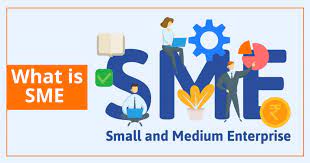SME owners say GST enabled uniform taxes but call for lower rates, easier compliance norms
The implementation of the goods and services tax (GST) in 2017 led to uniform tax rates across country but issues including the need for lower tax rates and easing compliance norms for tax filings need to be tackled to further strengthen the framework, small and medium (SME) business owners told Moneycontrol.
“Compliance framework for service providers is very complex requiring two returns to be filed every month in every state where they have operations despite all operations being under the same legal entity,” MS Mani, partner at Deloitte India, told Moneycontrol.
“Input tax credit depends on the vendor’s payment of GST over which the buyer has little control. Also, matching data on the GST portal with financial records is quite complex, especially for smaller businesses,” he added.
What owners say
Business owners say the rolling out of GST has enabled them to broaden their network of services.
Manoj Munot, owner of Shilpa Furniture, which has three outlets in Jalgaon, Maharashtra, says the tax problems he faced before the GST regime have reduced.
“GST is good for businesses, but the tax percentage charged for various items as per the HSN (Harmonized System of Nomenclature Code), that should be practical. It should not be intolerable, and rates should be reduced by 50 percent,” Munot said.
“I have been doing business for over 40 years. Earlier, my limitation was that I used to sell only in my district, but now I have no barrier as I can sell my goods online. I can do business anywhere due to uniform taxation, it provides more chances,” he added.
“If the tax rate is 18 percent, then throughout country it is 18 percent. If it is out of my state, then I have to mention 18 percent on my tax invoice. If it is within Maharashtra, I have to mention 9 percent tax to the state and central governments each. It is never like if I want to do business in Tamil Nadu, then I will be charged an extra 1 percent or 2 percent tax.”
However, goods classified as furniture attract a tax of 18 percent (the second highest GST slab), Munot said, adding that furniture must be considered an essential item.
Shailesh, a Mumbai-based small electrical parts wholesaler who goes by one name, says the GST system has computerised the processes, making it easier to file taxes.
“The process to file taxes is computerised so there is no challenge. The cost of items has not increased due to GST but due to inflation. As a business owner I have no problem with implementation of GST,” he said.
Anshu Tiwari Shukla, a Mumbai-based senior corporate law professional and GST consultant, says that the GST compliance systems have developed over time. “Earlier, applicability of GST was not easy for the government as well as for users. As a professional, I went through with so many difficulties at the initial stages of implementation like lengthy registration procedures and other problems in filing different tax returns,” Shukla said.
“Overall, GST has reduced the burden to file many other taxes, we just have to be up to date with filing. Yes, it will add up in monthly operational expenses but if you check annually, the cost for compliance will be less,” she added.




